Tornapartism
Families divided by party colours talk about living under one roof
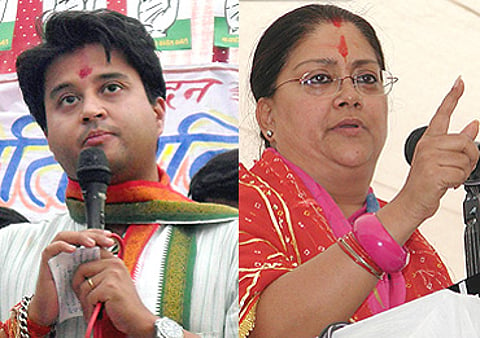
It is no longer restricted to the publicised break-ups in the Nehru-Gandhi and Scindia families. As the Indian polity gets increasingly fragmented, more and more families find themselves on opposing sides of the political divide. So Congress leader Digvijay Singh's brother Lakshman Singh is contesting from Rajgarh, MP, on a BJP ticket and former Kerala CM and Congress leader K. Karunakaran's son K. Muraleedharan is the NCP candidate from Wayanad. Srinagar, on the other hand, is likely to witness a battle between siblings Farooq Abdullah and Khalida Shah. While the former will contest on a National Conference ticket, his sister is expected to represent the Awami National Conference.
In Andhra Pradesh, D. Purandeswari of the Congress will be contesting against a party (TDP) her father N.T. Rama Rao founded. And in Bihar, Laloo Prasad Yadav of the RJD finds his brother-in-law Sadhu Yadav in the rival Congress camp. Laloo's father-in-law Shivprasad Choudhary, a panchayat leader, has also joined the Congress to support his son. Then there are political opponents who are related by marriage. For instance, Rajiv Shukla of the Congress happens to be BJP leader Ravi Shankar Prasad's brother-in-law. And Shiromani Akali Dal (Amritsar) president Simranjit Singh Mann is married to Congress leader Amarinder Singh's sister-in-law.
Most politicians have succeeded in keeping the family aside from their political beliefs. They stress the differences are more professional than personal. Like Lakshman Singh who says he fell out with the Congress party and not his brother. "I'm comfortable being in a party that opposes the one my brother is part of because we were always taught by our parents to think independently," he adds. "Moreover, our family has had ties with the Jana Sangh." Their father Balbhadra Singh fought as an independent candidate against the Congress in Raghogarh, MP, in 1952, and had the support of the Jana Sangh.
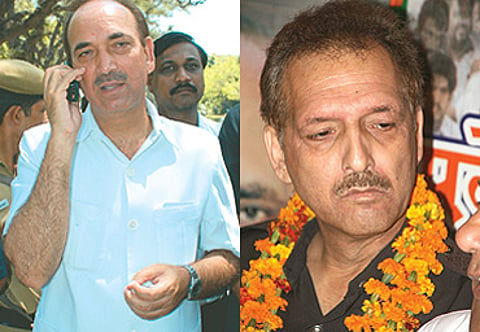
Nonetheless, it takes tact to prevent professional rivalry from creeping into the family. "It all depends on how you handle it," says Prasad, speaking from his wide experience of presenting the BJP's viewpoint to the media. "For instance, Rajiv and I are TV personalities. So we avoid appearing together on screen. Also, we avoid discussions on subjects where our stated positions are well-known. And if highly contentious issues still creep up, we ignore them with a faint smile."
But break-ups for political reasons are always not civil. Days after Azad's brother joined the BJP, decrying Babar as an invader and supporting the construction of a Ram temple in Ayodhya, Ghulam Nabi publicly disowned him and reportedly even called him "mentally unstable". "Family and politics are not dependent on each other but I have not brought this divide into our family, my brother did," says Ghulam Ali, who allegedly joined the BJP after he failed to secure a Congress ticket. Even the brother-sister duo of Farooq and Khalida have felt the chill set in their relationship. "Our relationship is just cordial. Farooq did come when my husband died recently, but since then we haven't met. I suppose everybody's busy," she says. Speaking about her contest against Farooq, Khalida adds, he will be "just another candidate". "Our goals may be the same but our routes certainly are different."
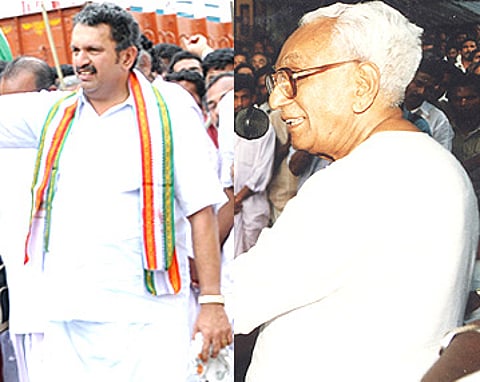
For sure, families divided by politics are not new to Indian polity. Way back in 1951, the husband-wife duo of Sucheta and Jivatram Kripalani split professionally when the latter quit the Congress to form the Kisan Mazdoor Praja Party.
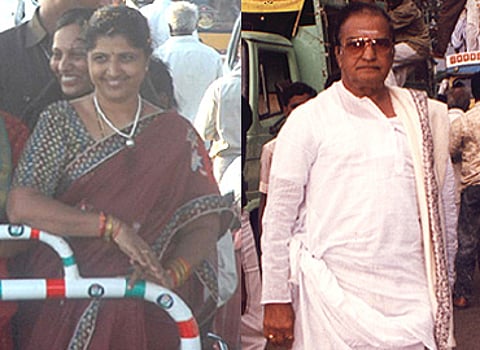
But are the growing number of divided families a sign of stronger democracy? V.B. Singh, former director of the Delhi-based Centre for the Study of Developing Societies, thinks so. He, in fact, sees a parallel between family members who are associated with different political parties and those who vote independently of each other. "Increasingly, we at CSDs have found that fewer women are being guided by their husbands when it comes to voting," he says. Surveys carried out by the centre claim the figure for such women voters today is more than 50 per cent. "So split families, like spouses who vote independently of each other, are a sign of the growth of a healthy democracy," Singh adds. "If Priyanka and Rahul were to fight against each other, that would not be bad for the system."
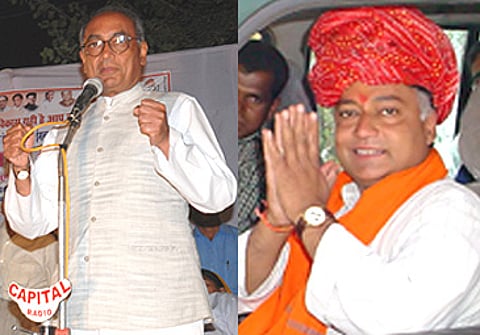
However, he cautions, divisions within families have to arise out of genuine political convictions and not "rebellion" as in the case of Arjun Singh's daughter, Veena. She is now contesting as an independent candidate from Sidhi in Madhya Pradesh, after her father failed to secure a Congress ticket for her. Sociologist Dipankar Gupta of Jawaharlal Nehru University says it would seem natural to question why families should behave as one. "But that argument needs to be demystified. Other than ideological differences, families are often divided because either there's money involved or they are trying to grab power in all quarters."
Moreover, while families may be on their way to being more democratic, political parties in India are certainly not. Many of them still remain under the control of dominant patriarchs and matriarchs. "But for the BJP and Left parties, there are none who can claim to be truly democratic," says Siddharth Nath Singh, spokesperson of the BJP and grandson of late Congress leader Lal Bahadur Shastri. Till that happens, we'll have to do with political families that may be democratic but parties that many describe as dynastic.
Tags